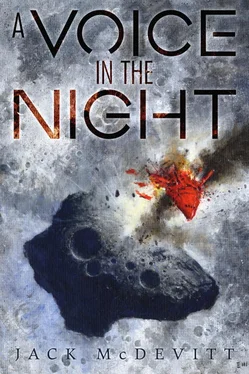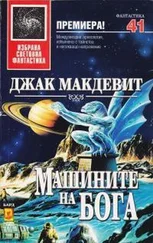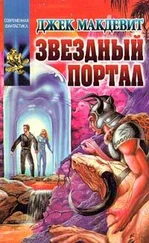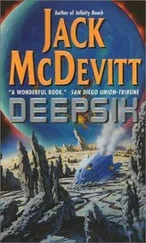“Pity.”
“There’s a lot of money to be made. I suspect it would be easy for you.”
I became conscious of the steady hum of power which began intensifying in the mainframe. “No,” he said.
“I’d be happy to take care of the details.” I was beginning to realize that in the course of analyzing Morphy’s chess I hadn’t paid enough attention to his character.
“Playing for money is crass,” he said.
“But you’ve done it all your life. You’ve competed for stakes and cash prizes.”
“Only during the last two years.” He sounded vaguely annoyed. “And only when it was necessary to get the match I wanted. Even then I usually found a way to return the money. No, only the depraved or the desperate play chess for profit.”
So Paul, at least in his own mind, saved me from depravity. But he was still untested, which meant that I had to pay someone to come in. I settled on Emma Monroe, the Pennsylvania state champion, for a six-game weekend match. “Who?” asked Paul. “Where’s Staunton? Give me Staunton, and then I’ll be happy to take on these amateurs.”
“Do it for me,” I said. “Meanwhile, I’ll see if I can arrange something.”
The game board was tied directly into the computer so Paul could move his pieces and track his opponent’s responses.
Emma had White for game one. She opened with the English, and got to about the eighth move before Paul blew it apart. She staggered along for a while, drinking coffee furiously and alternately glaring at me and the computer. Then she resigned.
Things continued downhill for her. During the second game, which was played that evening, Paul opened files and diagonals effortlessly and crushed her with careless ease. The stunned champion took her losses with grace, but anger blazed in her eyes. “Where’d he come from?” On Saturday she didn’t show up.
Paul grew moody. For long periods of time he sat coiled within the mainframe, refusing to speak. Sometimes, at night, I woke to Tchaikovsky and Saint-Saens. He began playing the Danse Macabre over and over.
One morning, approximately a week after Emma walked out on us, he locked me out of the system and seized the mainframe for about two hours. There was nothing I could do except pace the workroom demanding that he stop the nonsense.
Finally, without a word, he returned control to me. But I knew he’d had access to everything in the memory banks. Including Lincoln. Including the fact that he was a construct. That it was more than a hundred years later than he thought it was.
“Why did you do that?” I asked. “The others never tried to take over the unit.”
“I suspect,” Paul said, “that they were satisfied with your misrepresentations.” The voice was strained. Had it belonged to a human being, I would have thought I detected fear.
“And you’re not?”
Silence.
“Paul, you’ve wrecked the experiment.”
“I’m sorry.”
“It doesn’t matter. This whole thing was misconceived from the beginning.”
“I never got to play Staunton, did I?”
“No, Paul.”
“Wonderful.” His voice sounded very far away. “You have any idea how painful this experience has been?”
“In what way?”
“I have some bad news for you, Harold.” He gave my name a peculiar emphasis.
“What’s that?”
“You don’t really exist, you know. Nor this computer. Nor tomorrow. You are as you think I am: just a set of electrical pulses and a data net. Nothing more. It is you who are the experiment.”
I started to laugh, but the sound bounced around the room. It was a ridiculous notion. The threadbare furniture was, God knew, solid enough. And the work table. And the mainframe.
“Probably,” he continued, “I’ve invalidated the experiment by telling you.”
I held onto the tabletop.
And then he was the one who laughed.
“I’m sorry,” I said.
“It’s all right. But you might want to give some serious thought to the ethics of what you’re doing.”
“I’m sorry.”
“You said that. Your project won’t work, you know. The information is simply not there. Alexander’s dead.”
“Except chessplayers. Paul, are you an accurate reproduction of—the other one?”
“I don’t know much about him.” My insides were churning. “I mean, I understand about me, but I can’t be sure about him.”
“Is there anything I can do to make things easier?”
His electronic laugh rattled the room. “Don’t pull the plug.”
“I never do.”
“Good. And there’s one other thing.”
“What’s that?”
“Get me the match with Staunton.”
It was the least I could do. Bryan would have known how to handle the reluctant Emglishman, would simply have announced he was dead, and declared himself champion, thinking no more about the matter. I considered mixing the blend a little, giving Paul some of Bryan’s fire; but although I believed I could do it, the result would have been an artificial intelligence that was no longer a true Paul Morphy.
Unfortunately, Howard Staunton wasn’t the sort of person you wanted around. If you read books, or the column that ran thirty years ago in the Illustrated London News, you discover he is arrogant and overbearing and generally obnoxious. He did not hesitate to let his readers know he thought them blockheads. Ditto for his opponents. He listened to no one. On the rare occasions when someone beat him, he made excuses. Usually cited weariness. He made it clear that, given a good night’s sleep, he could take anybody.
Curiously, despite his aggressive personality, Staunton’s chess showed its strength in defense. He specialized in building impregnable positions, then either wearing an opponent down, or awaiting a blunder.
The prospect of him and Morphy in the same memory bank was disquieting. But I was out of options. I established him in 1847 London, when he was at the peak of his career, which was well before anyone had heard of Paul. On a bitter, hard, bright day in January, I finished the task. But before I loaded him, I asked Paul if he were sure. He was absorbed in Beethoven’s Missa Solemni .
“Yes,” he said. “Of course.”
“But why?” I asked him. “It’s a long time ago.”
“He kept promising a match, kept insulting me. He always smiled and found a reason he could not be available.”
“The historical Morphy,” I said, “had reason to hate him. You seem to feel the same way.”
“I would be happy to destroy him.”
“Why?” I asked again. “Why does it matter?”
“Because I was the best in the world, an ordinary man with a supreme gift! And I never got the chance to prove it. My God, Harold, I wasted it. Threw it away.” He lapsed into silence. Then, finally: “Do you know why?”
“Yes,” I said. “I know.”
“Staunton laughed at me,” he continued, breathless, as if I’d said nothing. “He laughed at me, ridiculed me in the journals, drove me out of Europe.”
“You? That was someone else. It was a human being, and it happened in the nineteenth century. You’re a simulation, Paul. A construct. A bit of software.”
“Am I?”
And so, with supreme reluctance, I gave Howard Staunton a set of synapses, perhaps awareness, maybe life.
“I understand,” I said to Staunton, “that you are the finest chessplayer in the world.”
Читать дальше










